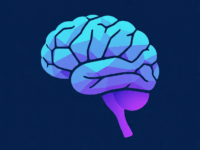
AI in Healthcare: Life-Saving Innovations 🩺
Imagine a future where diseases are detected earlier than ever before, where treatments are precisely tailored to your unique genetic makeup, and where medical research accelerates at an unprecedented pace. This isn’t science fiction; it’s the reality being forged by Artificial Intelligence (AI) in healthcare. From the operating room to the research lab, AI is rapidly becoming an indispensable tool, driving life-saving innovations that promise to revolutionize how we approach health and wellness.
Introduction: The Dawn of Intelligent Medicine 🌟
Healthcare, a field traditionally reliant on human expertise and intuition, is undergoing a profound transformation thanks to the integration of Artificial Intelligence. The sheer volume of medical data generated daily – from patient records and diagnostic images to genomic sequences and research papers – is far beyond human capacity to process efficiently. This is where AI shines, offering powerful capabilities to analyze vast datasets, identify complex patterns, and assist clinicians in making more informed, timely, and accurate decisions. The impact of AI in healthcare extends across the entire spectrum of care, from early disease detection and personalized treatment plans to accelerating drug discovery and optimizing hospital operations. These innovations are not just incremental improvements; they are truly life-saving, pushing the boundaries of what’s possible in medicine.
Background and Context: Why AI is a Game-Changer for Healthcare
For decades, medical advancements often came through painstaking research, clinical trials, and the accumulation of human experience. While invaluable, this process can be slow, costly, and sometimes limited by cognitive biases or the sheer volume of information. The advent of AI, particularly machine learning and deep learning, has provided healthcare with a powerful new ally.
AI’s ability to learn from data, recognize patterns, and make predictions is uniquely suited to the complexities of medicine. Consider the human genome, with its billions of base pairs, or the millions of medical images generated annually. AI can sift through this data at speeds and scales impossible for humans, uncovering insights that lead to earlier diagnoses, more effective treatments, and a deeper understanding of diseases. This shift is driven by the increasing availability of digitized health records, advanced imaging techniques, and genomic sequencing, all of which provide the fuel for AI algorithms to learn and evolve. The goal is not to replace the human touch in healthcare but to empower clinicians with intelligent tools that enhance their capabilities, reduce errors, and ultimately, save more lives.
Detailed Comparison: AI’s Impact Across Healthcare Domains
Let’s explore some of the most impactful applications of AI in healthcare, showcasing how different facets of the medical world are being transformed.
| AI Application Area | How AI Helps | Real-World Examples/Impact |
| Medical Imaging & Diagnostics | Analyzes X-rays, MRIs, CT scans, and pathology slides to detect anomalies. | Aidoc’s Radiology Platform: Prioritizes critical cases and detects abnormalities, speeding up diagnosis. Google DeepMind: Achieved 94% accuracy in diagnosing over 50 eye diseases from retinal scans, matching or exceeding human experts. |
| Drug Discovery & Development | Identifies potential drug candidates, predicts molecular interactions, optimizes clinical trials. | Atomwise (AtomNet platform): Scans millions of compounds to identify potential treatments (e.g., for Ebola in a day). Google DeepMind (AlphaFold): Predicted 3D protein structures with unprecedented accuracy, accelerating biomedical research and vaccine development. |
| Personalized Medicine | Analyzes genetic profiles, lifestyle, and clinical data to tailor treatments. | IBM Watson Health (with Mayo Clinic): Analyzes patient data to suggest tailored cancer treatments, improving response rates. AI helps determine optimal therapies for rare diseases and complex cancers. |
| Predictive Analytics | Forecasts health risks (e.g., hospital readmissions, sepsis, heart failure) by analyzing EHRs and patient data. | Valley Medical Center: Reduced 30-day readmission rates by 20% and saved $4 million annually using AI to identify high-risk patients. Helps in early intervention and chronic disease management. |
| Operational Efficiency | Automates administrative tasks, optimizes scheduling, manages inventory, and improves patient flow. | Huma Digital Patient Platform: Reduced readmission rates by 30% and time spent reviewing patients by 40%, alleviating healthcare provider workload. AI-driven scheduling reduces patient no-shows by 35%. |
| Virtual Assistants & Chatbots | Provides immediate patient support, answers routine questions, schedules appointments. | Welltok’s AI system: Analyzes patient interactions in real-time, assisting doctors and saving over 60% of user time. Buoy Health: AI chatbot for symptom checking and guidance. |
This comparison highlights that AI isn’t a single solution but a suite of technologies working across diverse healthcare functions, from the highly technical aspects of drug development to the everyday operations of a hospital.
Key Features / Benefits of AI in Healthcare
The transformative power of AI in healthcare stems from several core features and the benefits they deliver:
- Enhanced Diagnostic Accuracy and Speed: AI algorithms can analyze medical images (X-rays, MRIs, CT scans) and patient data with remarkable precision and speed, often identifying subtle patterns that human eyes might miss. This leads to earlier and more accurate diagnoses, which are crucial for effective treatment.
- Accelerated Drug Discovery and Development: The traditional drug development process is notoriously long and expensive. AI can significantly shorten this timeline by rapidly screening millions of compounds, predicting their efficacy and toxicity, and identifying promising drug candidates, leading to faster development of new therapies.
- Personalized Treatment Plans: By integrating vast amounts of patient data, including genetic information, lifestyle factors, and medical history, AI can help clinicians create highly personalized treatment plans. This precision medicine approach ensures that therapies are tailored to an individual’s unique biological makeup, maximizing effectiveness and minimizing adverse reactions.
- Predictive Analytics for Proactive Care: AI models can analyze historical and real-time patient data to predict health risks, such as the likelihood of developing a chronic disease, hospital readmissions, or adverse events. This enables healthcare providers to intervene proactively, preventing complications and improving patient outcomes.
- Streamlined Administrative and Operational Efficiency: AI can automate many routine and time-consuming administrative tasks, such as scheduling appointments, managing electronic health records, billing, and inventory. This frees up healthcare professionals to focus more on direct patient care, reducing burnout and improving overall system efficiency.
- Improved Patient Engagement and Access: AI-powered chatbots and virtual assistants can provide 24/7 support, answer common patient questions, and guide them through healthcare processes. This enhances patient engagement and can improve access to information and basic care, especially in remote areas.
- Support for Medical Research: AI can analyze massive research datasets, identify correlations, and generate hypotheses, accelerating the pace of scientific discovery and our understanding of complex diseases.
Pros and Cons of AI in Healthcare
While the promise of AI in healthcare is vast, it’s important to consider both its advantages and the challenges it presents.
Pros:
- Improved Patient Outcomes: Earlier diagnoses, personalized treatments, and predictive insights lead to more effective care and better health results.
- Increased Efficiency and Cost Savings: Automation of administrative tasks, optimized resource allocation, and faster drug discovery can significantly reduce healthcare costs.
- Enhanced Accessibility: AI can bridge gaps in healthcare access, particularly in underserved areas, through telemedicine and virtual assistants.
- Reduced Human Error: AI can provide a second opinion, flag potential issues, and analyze data without fatigue, potentially reducing diagnostic and treatment errors.
- Breakthrough Research: AI accelerates the pace of medical research, leading to new discoveries and therapies for previously untreatable conditions.
- Personalized Prevention: AI can identify individuals at high risk for certain conditions, allowing for targeted preventive measures.
Cons:
- Data Privacy and Security: Healthcare data is highly sensitive. The vast amounts of data required for AI raise significant concerns about breaches, misuse, and patient confidentiality.
- Algorithmic Bias: If AI models are trained on unrepresentative or biased datasets, they can perpetuate or even amplify existing health disparities, leading to unequal care for certain demographic groups.
- Lack of Transparency (Black Box Problem): The complex nature of some AI algorithms can make it difficult to understand how they arrive at a particular conclusion, posing challenges for accountability and trust in critical medical decisions.
- Regulatory Hurdles: The rapid evolution of AI technology often outpaces regulatory frameworks, creating uncertainty around approval processes, liability, and ethical guidelines.
- Integration Challenges: Implementing AI effectively requires significant investment in infrastructure, data standardization, and training for healthcare professionals, which can be a major hurdle for many institutions.
- Over-reliance and Deskilling: There’s a risk that healthcare professionals might become overly reliant on AI, potentially leading to a decline in critical thinking or diagnostic skills.
- Ethical Dilemmas: Questions about informed consent, accountability for AI errors, and the human element of care in an increasingly automated environment are complex and ongoing.
Use Cases / Who Should Use It
The applications of AI in healthcare are incredibly broad, making it relevant for a wide range of stakeholders:
- Hospitals and Clinics: For optimizing patient flow, managing appointments, automating administrative tasks, and enhancing diagnostic capabilities (e.g., radiology, pathology).
- Medical Researchers and Pharmaceutical Companies: For accelerating drug discovery, identifying new therapeutic targets, optimizing clinical trial design, and analyzing complex genomic data.
- Primary Care Physicians: For decision support in diagnosis, personalized treatment recommendations, and identifying at-risk patients for preventive care.
- Specialists (e.g., Oncologists, Radiologists, Cardiologists): For advanced image analysis, precise treatment planning, and predicting disease progression.
- Patients: Through AI-powered wearables for remote monitoring, virtual health assistants for symptom checking and information, and personalized health insights.
- Public Health Organizations: For tracking disease outbreaks, predicting epidemics, and managing population health initiatives.
- Insurance Companies: For fraud detection, risk assessment, and streamlining claims processing.
Essentially, any entity involved in delivering, researching, or managing healthcare can find transformative value in leveraging AI technologies.
FAQs about AI in Healthcare
Q1: How accurate is AI in diagnosing diseases compared to human doctors?
A1: AI systems, particularly in medical imaging, have shown remarkable accuracy, often matching or even exceeding human experts in specific tasks. For instance, AI has achieved 94% accuracy in diagnosing certain eye diseases and 94.5% in breast cancer detection from mammograms, sometimes outperforming human radiologists. However, AI is best used as a tool to assist doctors, providing a second opinion and flagging anomalies, rather than as a replacement for human judgment.
Q2: Can AI help in finding cures for diseases faster?
A2: Yes, AI is significantly accelerating the drug discovery and development process. By rapidly analyzing millions of chemical compounds, predicting molecular interactions, and optimizing clinical trial designs, AI can drastically cut down the time and cost traditionally associated with bringing new drugs to market, potentially leading to faster cures for various diseases.
Q3: What about patient data privacy when AI is used in healthcare?
A3: Data privacy is a critical concern. Healthcare AI systems handle vast amounts of sensitive patient information. Robust encryption, strict access controls, anonymization techniques, and adherence to regulations like HIPAA (in the US) or GDPR (in Europe) are essential to protect patient data from breaches and misuse. Ethical guidelines are continuously being developed to address these concerns.
Q4: Is personalized medicine truly possible with AI?
A4: Yes, AI is a cornerstone of personalized medicine. By integrating and analyzing an individual’s unique genetic profile, lifestyle data, medical history, and even real-time biometric data, AI can help clinicians tailor treatments, medications, and preventive strategies to be most effective for that specific person, moving away from a “one-size-fits-all” approach.
Q5: Will AI make healthcare more expensive?
A5: While the initial investment in AI infrastructure can be significant, AI has the potential to reduce overall healthcare costs in the long run. By improving diagnostic accuracy, preventing readmissions, streamlining administrative tasks, and accelerating drug discovery, AI can lead to greater efficiency, reduced waste, and more effective treatments, ultimately saving money for both patients and healthcare systems.
Conclusion: A Healthier Future with AI
The integration of AI in healthcare is not merely an incremental improvement; it represents a paradigm shift with the potential to fundamentally transform medical practice and patient outcomes. From revolutionizing diagnostics and accelerating drug discovery to enabling truly personalized medicine and streamlining hospital operations, AI is proving to be a powerful ally in the quest for better health. The case studies from real-world applications underscore the tangible, life-saving impact this technology is already having.
While the journey of AI in healthcare is not without its challenges – particularly concerning data privacy, ethical considerations, and equitable access – the ongoing advancements and the commitment of researchers and practitioners are paving the way for a future where healthcare is more precise, proactive, and accessible than ever before.
Final Verdict: AI – The Heartbeat of Tomorrow’s Healthcare ❤️
The evidence is overwhelming: AI in healthcare is not just a promising technology; it is actively delivering life-saving innovations today. Its ability to process complex data, identify subtle patterns, and provide intelligent assistance empowers medical professionals to make faster, more accurate decisions, leading to improved patient outcomes and a more efficient healthcare system. As AI continues to evolve, its role will only grow, becoming the very heartbeat of tomorrow’s intelligent, compassionate, and highly effective healthcare landscape. Embracing this technology responsibly is crucial for a healthier future for all.



















Leave a Reply